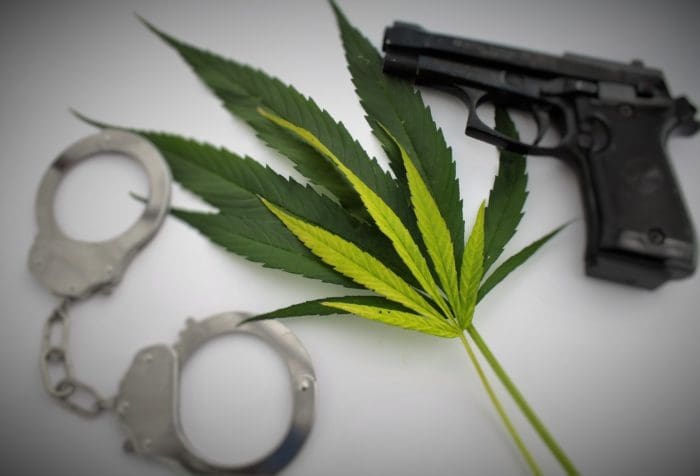By Chris Rabby
What does “legal” and medical marijuana law do to your gun rights, you and many gun owners ask?
The short answer is that the feds won’t allow a dealer to sell a pot-card holder a gun, and they shouldn’t possess one.
Florida and some other states have decided to legalize low-dose marijuana/THC for medical treatment or personal use. Many states have even amended the their constitutions to allow it. However, a “legal” user is not allowed to purchase a firearm.
In Wilson V. Lynch, Rowan Wilson was a “legal” marijuana prescription card holder in Nevada. She sued because a federal firearms licensees dealer (FFL) would not sell her a firearm, pursuant to directions from the Bureau of Alcohol, Tobacco, Firearms and Explosives (ATF).
In September, 2011, the ATF directed all FFLs “that regardless of whether his or her State has passed legislation authorizing marijuana for medical purposes, a person is an unlawful user and is prohibited by Federal law from possessing firearms or ammunition.” Any potential purchaser is required to answer that they are such a person on ATF Form 4473, question 21 e.
The court’s ruling said Wilson’s right to bear arms under the Second Amendment of the U.S. Constitution had been infringed, but that the government had a right to infringe upon it. Marijuana is still classified as a Schedule I controlled substance under the Controlled Substances Act, 21 U.S.C. § 812.
A Schedule I controlled substance is deemed to have “no currently accepted medical use in treatment…and…a lack of accepted safety for use of the … substance under medical supervision.” Id. § 812(b)(1)(B) & (c). Federal law outlaws possession of a firearm by an “unlawful user” of, or by a person addicted to any controlled substance, to possess a firearm (Title 18 U.S.C. §922(g)(3)). The penalty is the same as for a convicted felon possessing a firearm, a maximum of 10 years in prison.
The United States Supreme Court declined to accept the Wilson ruling. The Wilson case did not specifically address if it was legal to possess a weapon by a pot card holder, because there was no showing that Wilson actually had a firearm.
The US Supreme Court previously allowed a medical marijuana card holder to possess a firearm and a concealed weapons permit by declining to hear a case from Oregon. There, Jackson County, Oregon, Sheriff Mike Winter refused to issue a concealed gun permit to an admitted marijuana user. She appealed that decision and was issued a concealed weapon permit by the state appeals and Oregon Supreme Court.
The Sheriff’s petition for writ of certiorari to the United States Supreme Court was denied (132 S.Ct.199(2012)). But it appears the Wilson decision is now controlling, so you should not possess a firearm if you have a pot card.
This possession issue will certainly be brought before the Court again with more states legalizing marijuana in some form. My advice, after 25+ years as a criminal defense lawyer is to not mess with the feds. You do not want to be the person before the United States Supreme Court five years from now. So for now, you will have to choose between your pot or your guns.
Chris Rabby is a criminal defense attorney practicing law in Pensacola, Florida.
This article was originally published in November, 2020.
